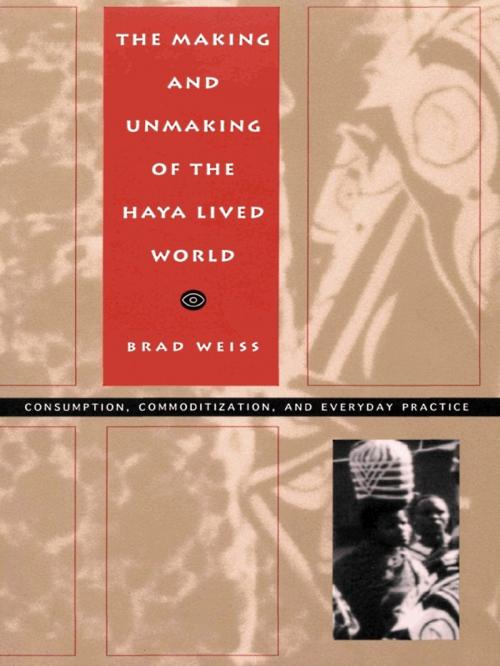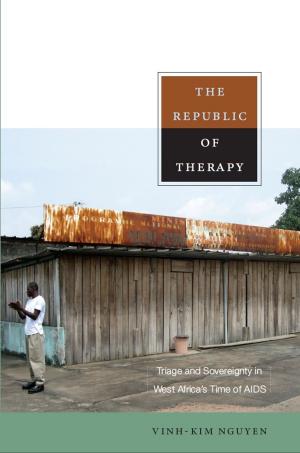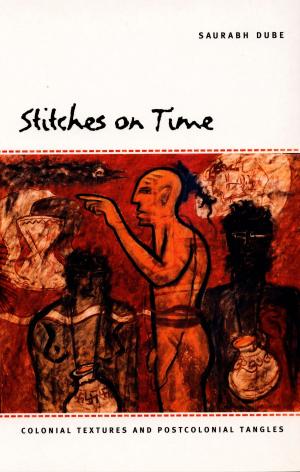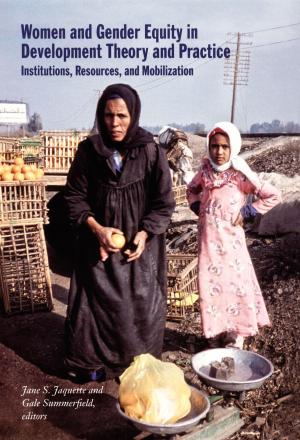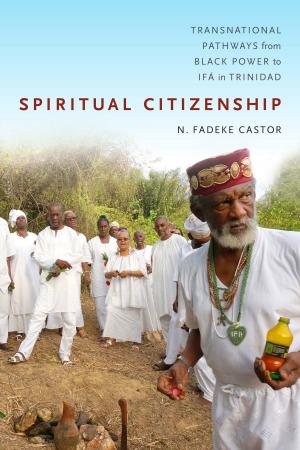The Making and Unmaking of the Haya Lived World
Consumption, Commoditization, and Everyday Practice
Nonfiction, Social & Cultural Studies, Social Science, Cultural Studies, Customs & Traditions, History, Africa| Author: | Brad Weiss | ISBN: | 9780822398493 |
| Publisher: | Duke University Press | Publication: | January 4, 1996 |
| Imprint: | Duke University Press Books | Language: | English |
| Author: | Brad Weiss |
| ISBN: | 9780822398493 |
| Publisher: | Duke University Press |
| Publication: | January 4, 1996 |
| Imprint: | Duke University Press Books |
| Language: | English |
At the center of this subtle ethnographic account of the Haya communities of Northwest Tanzania is the idea of a lived world as both the product and the producer of everyday practices. Drawing on his experience living with the Haya, Brad Weiss explores Haya ways of constructing and inhabiting their community, and examines the forces that shape and transform these practices over time. In particular, he shows how the Haya, a group at the fringe of the global economy, have responded to the processes and material aspects of money, markets, and commodities as they make and remake their place in a changing world.
Grounded in a richly detailed ethnography of Haya practice, Weiss’s analysis considers the symbolic qualities and values embedded in goods and transactions across a wide range of cultural activity: agricultural practice and food preparation, the body’s experience of epidemic disease from AIDS to the infant affliction of “plastic teeth,” and long-standing forms of social movement and migration. Weiss emphasizes how Haya images of consumption describe the relationship between their local community and the global economy. Throughout, he demonstrates that particular commodities and more general market processes are always material and meaningful forces with the potential for creativity as well as disruption in Haya social life. By calling attention to the productive dimensions of this spatial and temporal world, his work highlights the importance of human agency in not only the Haya but any sociocultural order.
Offering a significant contribution to the anthropological theories of practice, embodiment, and agency, and enriching our understanding of the lives of a rural African people, The Making and Unmaking of the Haya Lived World will interest historians, anthropologists, ethnographers, and scholars of cultural studies.
At the center of this subtle ethnographic account of the Haya communities of Northwest Tanzania is the idea of a lived world as both the product and the producer of everyday practices. Drawing on his experience living with the Haya, Brad Weiss explores Haya ways of constructing and inhabiting their community, and examines the forces that shape and transform these practices over time. In particular, he shows how the Haya, a group at the fringe of the global economy, have responded to the processes and material aspects of money, markets, and commodities as they make and remake their place in a changing world.
Grounded in a richly detailed ethnography of Haya practice, Weiss’s analysis considers the symbolic qualities and values embedded in goods and transactions across a wide range of cultural activity: agricultural practice and food preparation, the body’s experience of epidemic disease from AIDS to the infant affliction of “plastic teeth,” and long-standing forms of social movement and migration. Weiss emphasizes how Haya images of consumption describe the relationship between their local community and the global economy. Throughout, he demonstrates that particular commodities and more general market processes are always material and meaningful forces with the potential for creativity as well as disruption in Haya social life. By calling attention to the productive dimensions of this spatial and temporal world, his work highlights the importance of human agency in not only the Haya but any sociocultural order.
Offering a significant contribution to the anthropological theories of practice, embodiment, and agency, and enriching our understanding of the lives of a rural African people, The Making and Unmaking of the Haya Lived World will interest historians, anthropologists, ethnographers, and scholars of cultural studies.
